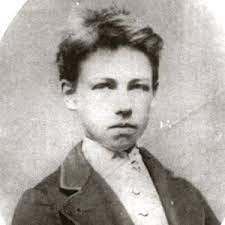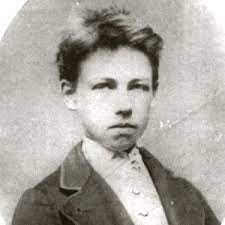Rimbaud, Excerpts of letter to Paul Demeny, Charleville, 15 May 1871
I have decided to give you an hour of new literature.
–Here is some prose on the future of poetry:–
All ancient poetry ended in Greek poetry, harmonious life. — From Greece to the romantic movement–Middle Ages–there are writers and versifiers. From Ennius to Theroldus, from Theroldus to Casimir Delavigne, it is all rhymed prose, a game, degradation and glory of countless idiotic generations: Racine is pure, strong and great. — If his rhymes had been blown out and his hemistichs mixed up, the Divine Fool would today be as unknown as any old author of Origins. — After Racine, the game get moldy. It lasted two thousand years!
Neither joke nor paradox. Reason inspires me with more enthusiasm on the subject than a Young France would have with rage. Moreover, newcomers are free to condemn the ancestors. We are at home and we have the time.
Romanticism has never been carefully judged. Who would have judged it? The critics! The Romantics? who prove so obviously that a song is so seldom a work, that is to say, a thought sung and understood by the singer.
For I is someone else. If brass wakes up a trumpet, it is not its fault. This is obvious to me: I am present at this birth of my thought: I watch it and listen to it: I draw a stroke of the bow: the symphony makes its stir in the depths, or comes on to the stage in a leap.
If old imbeciles had not discovered only the false meaning of the Ego, we would not have to sweep away those millions of skeletons which, for times immemorial, have accumulated the results of their one-eyed intellects by claiming to be the authors!
In Greece, as I have said, verses and lyres give rhythm to Action. After that, music and rhymes are games and pastimes. The study of this past delights the curious: several rejoice in reviving those antiquities–it is for them. Universal intelligence has always thrown out its ideas naturally; men picked up a part of these fruits of the mind: people acted through them and wrote books about them. Things continued thus: man not working on himself, not yet being awake, or not yet in the fullness of the great dream. Civil servants, writers: author, creator, poet, that man never existed!
The first study of the man who wants to be a poet is the knowledge of himself, complete. He looks for his soul, inspects it, tests it, learns it. As soon as he knows it, he must cultivate it! It seems simple: in every mind a natural development takes place; so many egoists call themselves authors, there are many others who attribute their intellectual progress to themselves! — But the soul must be made monstrous: in the fashion of the comprachicos [kidnappers of children who mutilate them in order to exhibit them as monsters], if you will! Imagine a man implanting and cultivating warts on his face.
I say one must be a seer, make oneself a seer.
The Poet makes himself a seer by a long, gigantic and rational derangement of all the senses. All forms of love, suffering, and madness. He searches himself. He exhausts all poisons in himself and keeps only their quintessences. Unspeakable torture where he needs all his faith, all his super-human strength, where he becomes among all men the great patient, the great criminal, the one accursed– and the supreme Scholar!–Because he reaches the unknown! Since he cultivated his soul, rich already, more than any man! He reaches the unknown, and when, bewildered, he ends by losing the intelligence of his visions, he has seen them. Let him die as he leaps through unheard of and unnamable things: other horrible workers will come; they will begin from the horizons where the other collapsed!
– To be continued in six minutes –
– I continue:
Therefore the poet is truly the thief of fire.
He is responsible for humanity, even for the animals; he will have to have his own inventions smelt, felt, and heard; if what he brings back from down there has form; if it is formless, he gives formlessness. A language must be found. Moreover, every word being an idea, the time of a universal
language will come! One has to be an academician–deader than a fossil–to complete a dictionary in any language whatsoever. Weak people would begin to think about the first letter of the alphabet, and they would soon rush into madness!
This language will be of the soul for the soul, containing everything, smells, sounds, colors, thought holding on to thought and pulling. The poet would define the amount of the unknown awakening in his time the universal soul: he would give more–than the formulation of his thought, than the annotation of his march toward Progress! Enormity becoming normal, absorbed by all, he would really be a multiplier of progress!
This future will be materialistic, as you see. — Always filled with Number and Harmony, these poems will be made to endure. — Fundamentally, it would be Greek poetry again in a new way.
Eternal art would have its functions, since poets are citizens. Poetry will not lend its rhythm to action, it will be in advance.
These poets will exist. When the endless servitude of woman is broken, when she lives for and by herself, man–heretofore abominable–having given her her release, she too will be a poet! Woman will find some of the unknown! Will her world of ideas differ from ours? — She will find strange, unfathomable, repulsive, delicious things; we will take them, we will understand them.
Meanwhile, let us ask the poet for the new–ideas and forms. All the clever ones will soon believe they have satisfied the demand–it is not so!
This is an excerpt of his letter. We will continue on with this letter next. Meantime, I will send shots from my Paris walks. Good health and good spirits to all.






Share this post